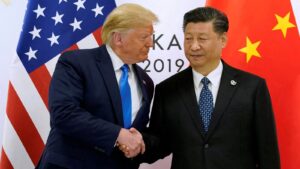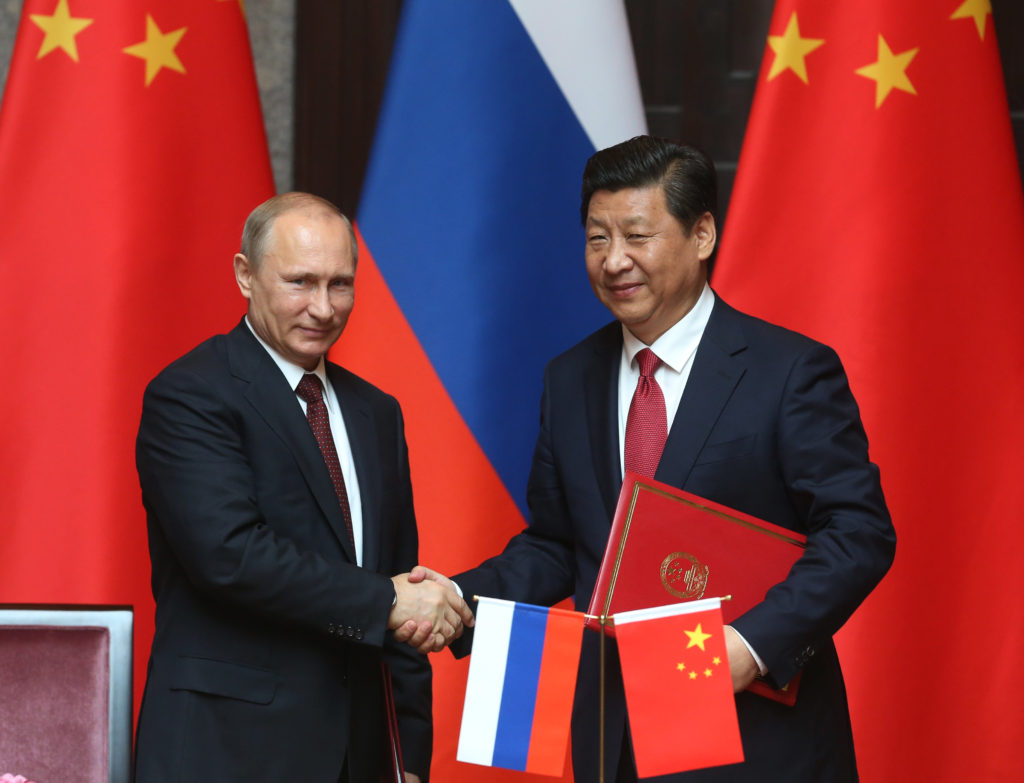|
Getting your Trinity Audio player ready...
|
In a significant development for global tech innovation, BRICS nations have agreed to collaborate on the advancement of quantum technologies. Russian Minister for Digital Development, Maksut Shadaev, confirmed that Russia and China are leading efforts to develop and educate language models that can transform key economic sectors.
This announcement came after a productive BRICS Communications Ministers Meeting, where the countries discussed their joint commitment to tackling emerging technological challenges and reducing reliance on Western technology.
Quantum Technologies: The Next Frontier for BRICS
The BRICS nations—Brazil, Russia, India, China, and South Africa—are collectively focusing on quantum technologies, an area that promises transformative applications across industries. These technologies are seen as critical for enhancing computational power, cybersecurity, and data encryption, among other fields.
“We have discussed today that there are indeed more promising technologies from the standpoint of achieving practical results,” said Shadaev, following the BRICS meeting. “We agreed that we will interact closely in this space,” he added. The BRICS countries aim to foster an environment of shared technological advancement, with quantum technologies sitting at the heart of their plans for the future.
Quantum computing holds the potential to revolutionize industries such as healthcare, financial services, and artificial intelligence (AI), which is why collaboration between the BRICS nations is seen as crucial. By pooling their expertise, these nations hope to unlock the full potential of quantum technologies faster than they could individually.
Russia and China Lead the Charge on Language Model Development
In addition to quantum technologies, Russia and China are spearheading efforts to develop and train sophisticated language models. These models will be applied in specific economic sectors, providing advanced capabilities such as natural language processing and AI-driven decision-making.

Shadaev pointed out the importance of collaboration in this domain. “Development and training of language models used in narrow areas of economic sectors are planned to be worked out with our partners from China,” the minister noted. The focus is on specialized applications of AI technology, which could significantly boost productivity and competitiveness in sectors like manufacturing, logistics, and healthcare.
Language models, such as the ones planned by Russia and China, have gained increasing attention in recent years for their ability to understand and generate human-like text. By tailoring these models to specific industries, BRICS nations aim to streamline operations and increase efficiency in various sectors, all while enhancing their global competitiveness.
Strategic Cooperation in the Face of Western Dominance
The ongoing cooperation between Russia, China, and other BRICS nations is, in part, a response to what Shadaev described as the “monopoly and restrictions” imposed by Western countries. According to the Russian minister, technological self-sufficiency is becoming increasingly important in a world where reliance on Western-developed technologies can leave nations vulnerable to sanctions and trade restrictions.
“Not a single country can be fully independent and competitive. Therefore, the main issue is that we should look for points of interaction, and friendly countries should pursue cooperation,” Shadaev emphasized. He suggested that cooperation between BRICS nations is essential if they are to challenge Western dominance in areas such as AI, cloud computing, and advanced encryption technologies.
Shadaev’s comments underscore the growing tension between Western and Eastern powers when it comes to technological innovation and competition. As BRICS countries work together to develop cutting-edge solutions, they aim to create alternatives to Western technologies, reducing the global imbalance of power in tech.
A Growing Tech Alliance with Global Implications
The BRICS alliance is quickly becoming a formidable force in global technological development. By focusing on emerging fields like quantum computing and language models, these nations are positioning themselves as key players in the next wave of technological innovation.
BRICS countries have long advocated for greater collaboration in sectors such as energy, infrastructure, and finance. However, their push into advanced technologies represents a new chapter for the alliance, signaling their commitment to technological sovereignty and economic independence.
Moving forward, the development of quantum technologies and language models by BRICS nations will likely have a profound impact on global technological standards, intellectual property rights, and economic competition. As these countries invest more in research and development, the rest of the world will be watching closely.
Conclusion: A Future Defined by Tech Collaboration
As the BRICS nations deepen their cooperation on quantum technologies and AI-driven language models, they are laying the groundwork for a more competitive and self-reliant future. With Russia and China at the forefront of this effort, the global technological landscape is likely to shift in ways that challenge Western dominance. By working together, BRICS nations are not only advancing their own technological capabilities but also offering new models for collaboration in a rapidly evolving world.
The implications of this growing tech alliance are vast. As quantum technology continues to develop and AI becomes more embedded in global economic sectors, the partnership between BRICS countries could reshape the balance of power in the tech industry.



